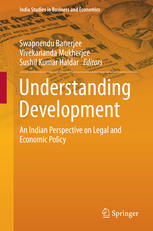

Most ebook files are in PDF format, so you can easily read them using various software such as Foxit Reader or directly on the Google Chrome browser.
Some ebook files are released by publishers in other formats such as .awz, .mobi, .epub, .fb2, etc. You may need to install specific software to read these formats on mobile/PC, such as Calibre.
Please read the tutorial at this link: https://ebookbell.com/faq
We offer FREE conversion to the popular formats you request; however, this may take some time. Therefore, right after payment, please email us, and we will try to provide the service as quickly as possible.
For some exceptional file formats or broken links (if any), please refrain from opening any disputes. Instead, email us first, and we will try to assist within a maximum of 6 hours.
EbookBell Team

5.0
98 reviewsThis book addresses topical development issues in India, ranging from land acquisition, poverty alleviation programs, labor market issues, the public-private partnership (PPP) model and fiscal federalism. It offers an Indian perspective on the dynamics of economic development and the impact the country’s legal and public policies have on it. Economic development is a dynamic concept – old problems are solved, while at the same time new issues come to the fore. The emergence of these issues is unique to the development experience of an economy. The book includes sixteen recent contributions and is divided into four sections: law and contract; trade and foreign aid; issues in public economics; and the social sector and poverty alleviation. The chapters reflect on a number of development issues which were of concern for India in the recent past and will be important in her future development initiatives such as land acquisition, agricultural productivity, employment, protection of intellectual property rights, corruption, public-private partnership, regional development, poverty alleviations programs like the National Rural Employment Guarantee Act (NREGA) and the training of self-help group members, health and education of women, to name a few. The book is a valuable reference resource for policy practitioners and researchers working on the economics of development with special focus on developing economies.